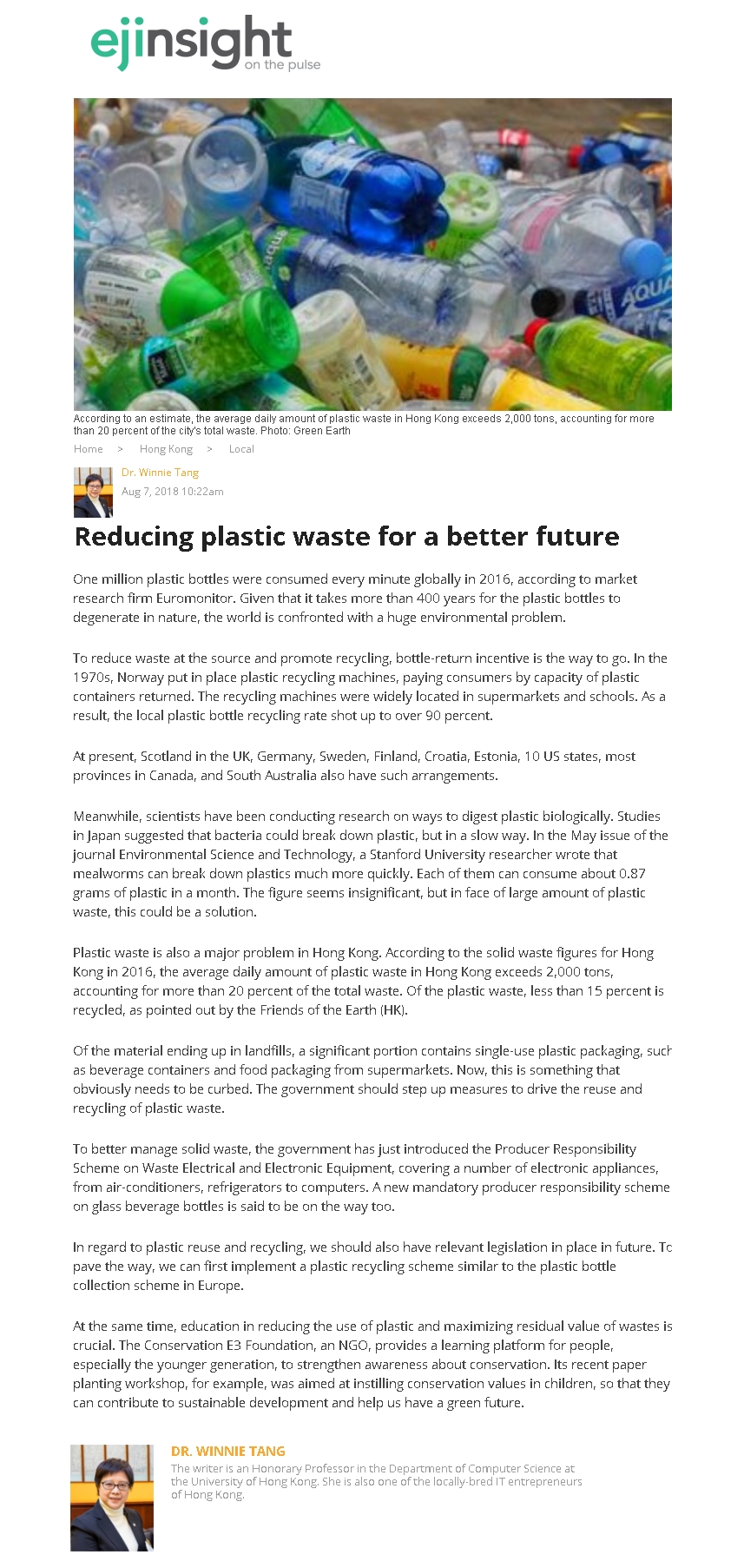網上版請按此
Reducing plastic waste for a better future
plastic waste for a better future
One million plastic bottles were consumed every minute globally in 2016, according to market research firm Euromonitor. Given that it takes more than 400 years for the plastic bottles to degenerate in nature, the world is confronted with a huge environmental problem.
To reduce waste at the source and promote recycling, bottle-return incentive is the way to go. In the 1970s, Norway put in place plastic recycling machines, paying consumers by capacity of plastic containers returned. The recycling machines were widely located in supermarkets and schools. As a result, the local plastic bottle recycling rate shot up to over 90 percent.
At present, Scotland in the UK, Germany, Sweden, Finland, Croatia, Estonia, 10 US states, most provinces in Canada, and South Australia also have such arrangements.
Meanwhile, scientists have been conducting research on ways to digest plastic biologically. Studies in Japan suggested that bacteria could break down plastic, but in a slow way. In the May issue of the journal Environmental Science and Technology, a Stanford University researcher wrote that mealworms can break down plastics much more quickly. Each of them can consume about 0.87 grams of plastic in a month. The figure seems insignificant, but in face of large amount of plastic waste, this could be a solution.
Plastic waste is also a major problem in Hong Kong. According to the solid waste figures for Hong Kong in 2016, the average daily amount of plastic waste in Hong Kong exceeds 2,000 tons, accounting for more than 20 percent of the total waste. Of the plastic waste, less than 15 percent is recycled, as pointed out by the Friends of the Earth (HK).
Of the material ending up in landfills, a significant portion contains single-use plastic packaging, such as beverage containers and food packaging from supermarkets. Now, this is something that obviously needs to be curbed. The government should step up measures to drive the reuse and recycling of plastic waste.
To better manage solid waste, the government has just introduced the Producer Responsibility Scheme on Waste Electrical and Electronic Equipment, covering a number of electronic appliances, from air-conditioners, refrigerators to computers. A new mandatory producer responsibility scheme on glass beverage bottles is said to be on the way too.
In regard to plastic reuse and recycling, we should also have relevant legislation in place in future. To pave the way, we can first implement a plastic recycling scheme similar to the plastic bottle collection scheme in Europe.
At the same time, education in reducing the use of plastic and maximizing residual value of wastes is crucial. The Conservation E3 Foundation, an NGO, provides a learning platform for people, especially the younger generation, to strengthen awareness about conservation. Its recent paper planting workshop, for example, was aimed at instilling conservation values in children, so that they can contribute to sustainable development and help us have a green future.
Dr. Winnie Tang
Honorary Professor, Department of Computer Science, The University of Hong Kong